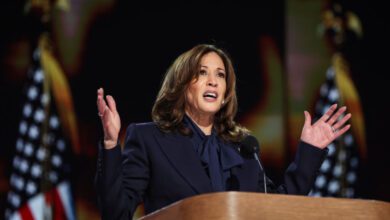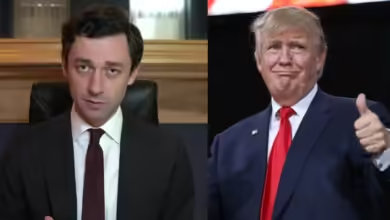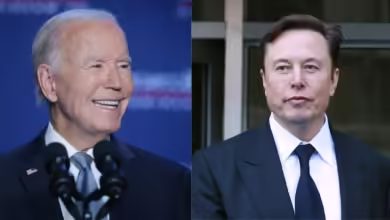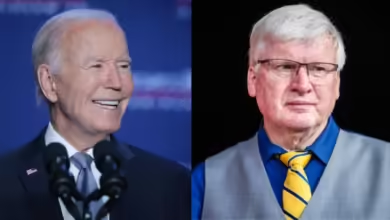Rising Controversies: Khalistani Supporters Misinterpret Rahul Gandhi’s Statements Amid US Tour
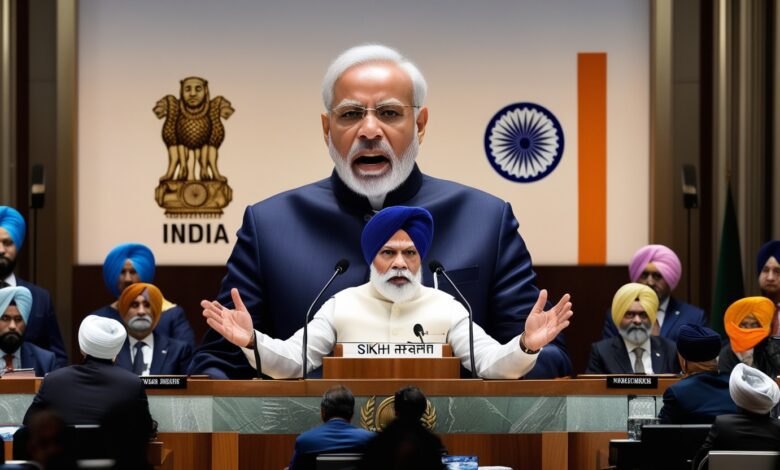
In a recent statement during his US tour, Indian political leader Rahul Gandhi has stirred a wave of controversy. His remarks about religious freedom in India have been interpreted by Khalistani supporter Gurpatwant Singh Pannu as validation of the Khalistan movement. As Gandhi’s US visit continues, political observers are raising concerns about how his words are being used to fuel separatist agendas.
The Khalistani Interpretation: Pannu’s Statement
Gurpatwant Singh Pannu, a well-known Khalistani supporter, has recently made a controversial statement. He claimed that Rahul Gandhi’s remarks on religious freedom in India confirm the legitimacy of the Khalistan movement. Pannu has gone as far as using Gandhi’s statements to bolster the demand for an independent Khalistan.
Rahul Gandhi’s US Visit Sparks Controversy: The Ilhan Omar Connection and BJP’s Criticism
This comes at a time when Gandhi’s comments are under heavy scrutiny, both in India and abroad. His reference to challenges faced by the Sikh community in India has provided fodder for separatist groups, who have long argued for a separate state based on religious grounds.
What Did Rahul Gandhi Say?
During his ongoing tour in the United States, Rahul Gandhi attended various seminars and interviews, where he engaged with several US lawmakers, including key figures in the Biden administration. Photos of Gandhi meeting controversial US Congresswoman Ilhan Omar sparked significant debate in India, with various political factions criticizing the associations.
However, it was Gandhi’s remarks during one of his interactions that caused the most stir. Addressing a question about the Sikh community, Gandhi stated, “The fight is about whether a Sikh will be allowed to wear his turban, wear his Kara, and visit the Gurudwara in India.”
These comments, suggesting that religious freedoms are under threat in India, have been widely criticized by Indian political observers. Critics argue that the Sikh community enjoys religious freedom, with prominent leaders, including Prime Minister Narendra Modi, frequently visiting Gurudwaras.
The Use of Gandhi’s Statements by Khalistani Groups
Pannu and other Khalistani supporters have quickly capitalized on Gandhi’s words, using them to push their agenda. For years, pro-Khalistan groups have claimed that Sikhs face discrimination in India, a narrative that has been largely dismissed by mainstream political voices.
Despite India being a secular democracy with extensive representation of Sikhs in government, sports, business, and various fields, groups like Pannu’s continue to use instances like Gandhi’s statement to further their cause.
The Bigger Picture: Why Is Rahul Gandhi Touring the US?
Gandhi’s visit to the US comes just ahead of the United Nations General Assembly (UNGA) session in September, which will see numerous world leaders and foreign ministers gather in New York. Initially, there were speculations that Prime Minister Narendra Modi would attend the UNGA, but reports have since confirmed that External Affairs Minister S. Jaishankar will represent India instead.
Modi’s decision to skip the UNGA in favor of attending the BRICS Summit in Russia in October has raised eyebrows, especially given the ongoing geopolitical tensions between Russia, the US, and India. Analysts are speculating about the future of India-US relations, particularly in light of Modi’s decision to prioritize BRICS over the UNGA.
Controversial Associations: Gandhi’s Meeting with Ilhan Omar
The controversy around Gandhi’s tour intensified when pictures of him with Congresswoman Ilhan Omar emerged. Omar, who has been critical of India’s policies on Kashmir and Article 370, is seen as a controversial figure in Indian political circles. In 2022, Omar visited Pakistan-occupied Kashmir (PoK) without US government approval, raising questions about her foreign policy stance.
Many in India view Omar as an advocate for Pakistan’s position on the Kashmir issue, further complicating the optics of Gandhi’s meeting with her.
Pannu’s Strategy: Khalistan and International Narratives
Pannu and other pro-Khalistan groups have historically latched onto international controversies to further their agenda. By taking Gandhi’s words out of context, they hope to present India as a country where Sikh rights are under threat, even though mainstream Sikh voices in India and abroad have debunked these claims.

In fact, India’s political leaders frequently engage with the Sikh community. Uttar Pradesh Chief Minister Yogi Adityanath has made several visits to Gurudwaras, and in 2021, declared Sahibzada Day to honor Sikh Gurus.
The US Angle: How Will Washington React?
While the US government has yet to respond to the controversy surrounding Gandhi’s remarks and his meeting with Omar, US Ambassador to India Eric Garcetti recently made a statement expressing the desire for a “BFF” (Best Friends Forever) relationship with India. This comment, while light-hearted, underscores the importance the US places on its strategic partnership with India.
However, as Modi prepares for his upcoming visit to Russia for the BRICS Summit, it remains to be seen how the US will navigate its relationship with India, especially given the growing tensions between the US and Russia.
Conclusion: Political Ramifications and Future Implications
Rahul Gandhi’s US tour, marked by controversial statements and high-profile meetings, has become a focal point in Indian politics. As pro-Khalistan groups continue to misinterpret his words for their own gain, the international implications of this controversy are only just beginning to unfold.
With major global events like the UNGA and BRICS Summit on the horizon, the world will be watching closely to see how India’s political leaders navigate these challenges and how the US reacts to the evolving geopolitical landscape.


